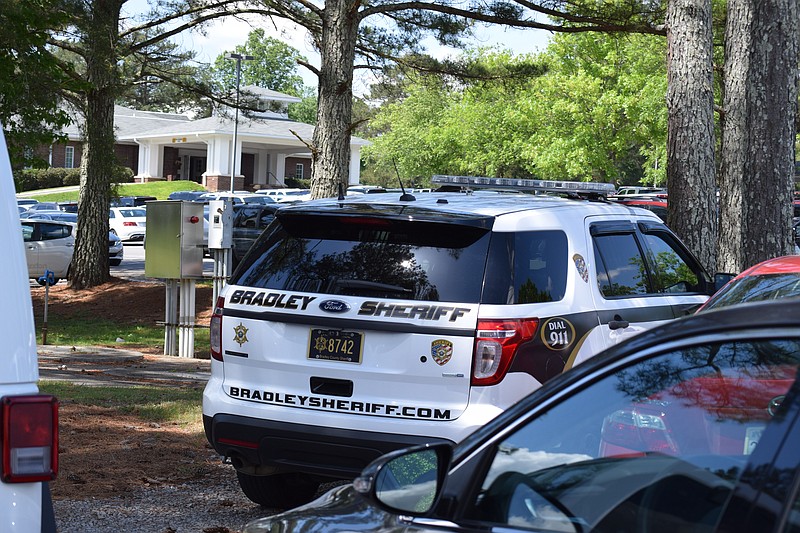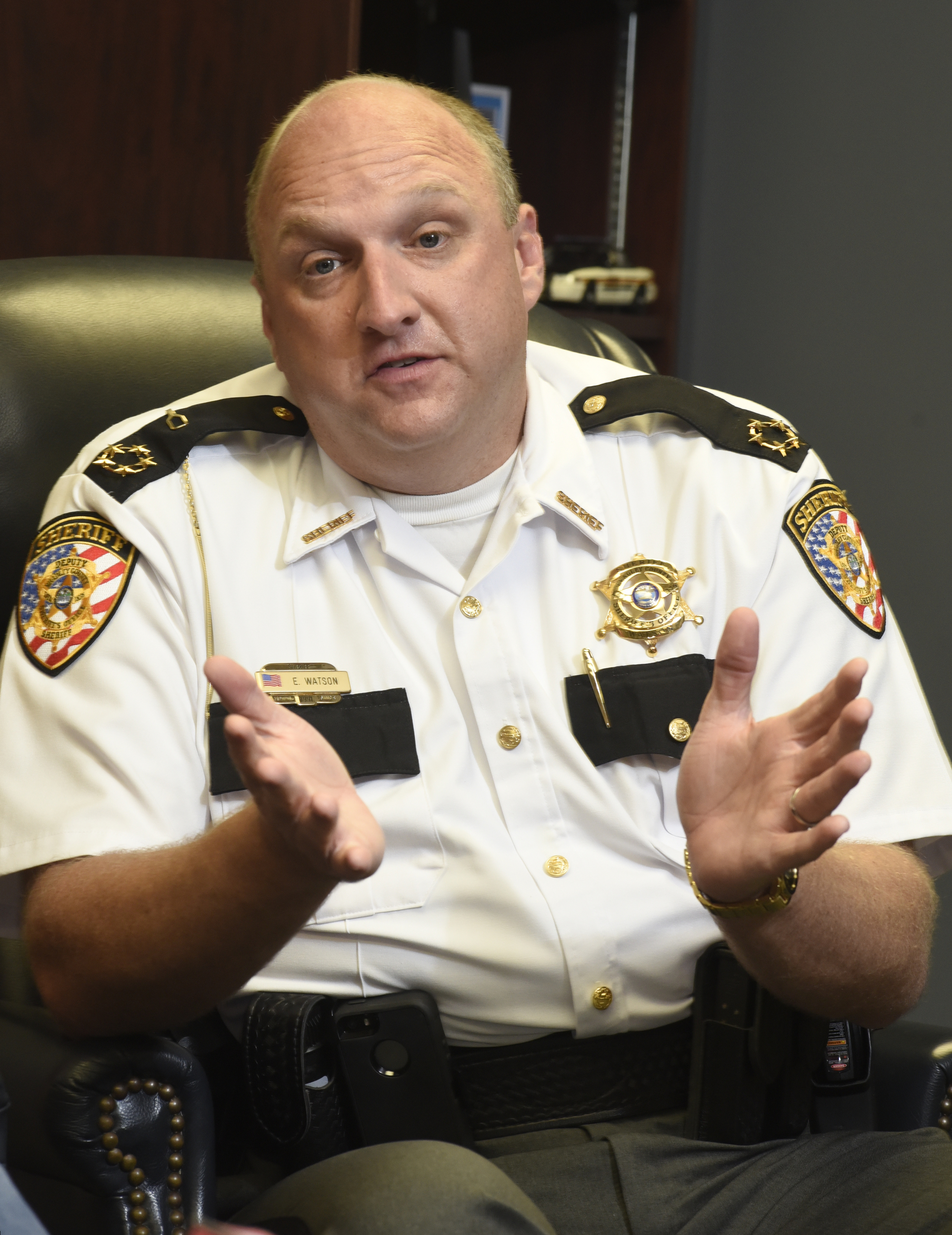CLEVELAND, Tenn. - The inaugural Sheriff's Luncheon hosted by Eric Watson on May 13 at the Cleveland Country Club appeared to violate numerous state laws.
For starters, there were the marked police and emergency vehicles parked under the pines.
Bradley County policy and state law forbid the use of publicly owned vehicles for political purposes, and the luncheon was promoted as a campaign event. One Facebook invitation noted that "Donations at the door will be accepted" and another electronic e-vite required potential guests to "RSVP or remit check to: Eric Watson for Sheriff."
Then there was the handful of uniformed officers from local law enforcement and emergency agencies. It's also against state law and county sheriff's office policy to attend a political event on duty or in uniform.
The speaker, David Purkey, Tennessee director of Homeland Security, talked about security needs and praised Watson for "strong, competent leadership" at the sheriff's office.
"I cannot imagine having anyone better professionally or personally in the office of sheriff for your county," Purkey told a crowd that included the Cleveland and Bradley County mayors, at least one state representative and the district attorney, according to the Cleveland Daily Banner.
By law, state employees may not take part in political events while they are on state business. Purkey said he was on his lunch hour, but his speech was listed on his official daily schedule and the invitations described him as Homeland Security director.
And finally, there was the pressure some sheriff's office employees felt to donate to the cause. That one violates county policy, state law and perhaps the federal Hatch Act, which prohibits coercing employees to make political contributions.
Watson did not return requests for comment Friday or over the weekend on whether he was aware of the apparent conflicts or how much the event raised for his campaign.
Purkey said that when he was invited during the legislative session to speak at the luncheon, he didn't realize it was a campaign event. When he learned differently, he said, "I told them I would only do this on my lunch hour."
Tennessee's Little Hatch Act, modeled after federal law, says state employees may not "engage actively in a political campaign on behalf of any party, committee, organization, agency or political candidate, or to attend political meetings or rallies during those hours of the day when such person is required by law or administrative regulation to be conducting the business of the state."
However, the law exempts employees "on leave or during those hours not required by law or administrative regulation to be conducting the business of the state."
Purkey said officials appointed by the governor also are exempt, and he's one of them.
"I'm not claiming an exemption based on that," he said. "I'm saying that I made sure it was during my lunch hour on my way home to East Tennessee."
His hometown, Morristown, is off Interstate 40 northeast of Knoxville. After accepting the speaking invitation, he added a visit to the Homeland Security office in Chattanooga to his itinerary, Purkey said.
He said Homeland Security agent Dewey Woody was named to the new Chattanooga post after the July 16, 2015, attacks on military facilities here.
"I needed to make a visit with him," Purkey said. "You've got to guard against just sitting in your office; your field people want to see you."
While Purkey was invited, multiple employees in the Bradley County Sheriff's Office said the event was a command performance for many in the department's upper ranks. The sources all asked for anonymity for fear of retaliation.
A Bradley County policy, signed by Watson, mirrors a state statute called the County Sheriff's Civil Service Law (T.C.A. 8-18-401 et seq.)
It says, among other things, that no employee of the Bradley County Sheriff's Office may take part in any political campaign or solicit money for political campaigns on duty, or use a sheriff's office vehicle for such purposes. Violations can result in discipline or termination.
However, multiple sheriff's office employees said higher-level officers were expected to be present. At least some top officers told their subordinates to take leave, wear civilian clothes and drive their personal vehicles, multiple sources told the Times Free Press, but photos and social media posts from the event showed some wearing uniforms.
A Times Free Press reporter saw at least three marked Bradley County Sheriff's Office cruisers parked outside, along with a couple of emergency service vehicles.
Multiple sources also said there was a clear expectation that higher-ranking members were to donate money to the cause.
Bill Johnson, executive director of the Virginia-based National Association of Police Organization, said strong-arming of the rank and file by higher-ups is rarer than it used to be, but hasn't disappeared.
"It does tend to occur, and when it does occur it's usually in a sheriff's office [because they are elected where police chiefs are appointed], and usually in the South," Johnson said by telephone.
"It's certainly completely unethical, and it puts the deputies in a bind. If they refuse, they very well can be out of a job; if they give in, in a way they become part of the unethical process," he said.
And it's asking a lot for officers to step up and speak out when their jobs are at stake, he added.
"The individual deputy is between a rock and a hard place - in effect, 'I have to do something that's morally wrong to keep this job,'" he said.
Asked whether he knew some officers at the luncheon said they had been strongly urged to attend and to donate, Purkey said no.
"If that's the situation, that's wrong," he said.
Contact staff writer Judy Walton at jwalton@timesfreepress.com or 423-757-6416.

